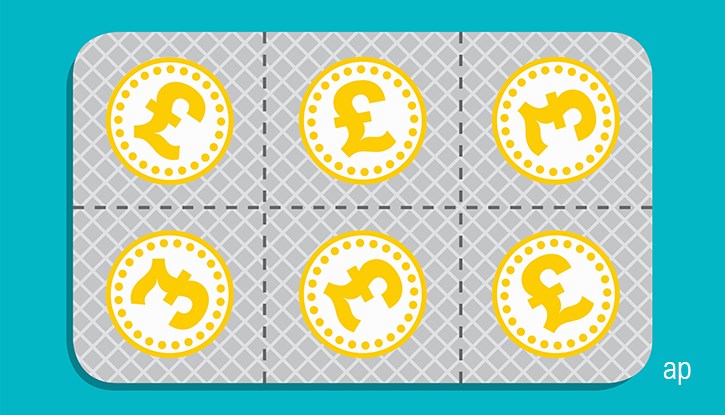
Cash has a peculiar hold on the British psyche. Not the folding stuff itself, as we’ve embraced contactless payments faster than some countries, especially during Covid-19.
Nor do we put it under the mattress, as many Europeans do (where are all those missing €500 euro notes?). We’re talking about liquid assets: money left languishing in savings or current accounts.
According to the latest HMRC figures, Cash ISAs are the preferred choice for both adults and for those buying products for their children. Most people know from their interest statement that it’s a woefully inadequate vehicle for anything other than keeping your money physically safe, so why are we still in love with it? (See here for our piece from earlier this year on why you shouldn't hold too much cash). Inflation is raging ahead too, meaning the purchasing power of cash is being wiped out the longer you hold on to it.
Like all such issues, there are plenty of of interconnected factors, including culture, demographics and recent events.
Risk is a key one. If you're a saver or investor who does not like surprises, the world has not been kind to you in the last two decades. The list of unexpected and wealth-threatening events is long, from the financial crisis to Brexit and now Covid-19.
Climate change is an even bigger challenge, as nobody knows what the precise long-term impact will be on the economy. As such, the urge to keep some money on the sidelines may very well be a rational one. Faced with so much uncertainty, the obvious response is to stick with (what looks like) secure assets.
Liquidity Matters
Who needs cash anyway?
Liquid assets are useful at all life stages, but seem to pinch hardest on both sides of the generational divide: first-time buyers want to keep their deposits “safe” in cash, while those over 60 may be worrying about future care costs, or gifting money to children and grandchildren for inheritance tax purposes.
This latter group may have grown up in an a more austere era when money was harder to come by, cash offered comfort, and the bank manager was a person of seniority in the community.
Baby Boomers may even have lost money in shares before or had bad experiences of financial advisers during the era of commission-hungry salespeople. Cash also has a role to play in fuelling the British obsession with property, from buying extensions, kitchens, paying builders or saving deposits for the next rung on the ladder.
In addition, investing in stocks is exciting, but it is confusing and dangerous for the uninitiated. Wealth manager Charles Stanley surveyed people late last year about their attitudes to cash and stocks. They found people had a number of reasons for not investing, including offputting financial jargon, fears over market volatility and over-complex products. There is also still widespread distrust of the financial services industry, which manifests itself in different ways, from reluctance to use IFAs to the enthusiastic adoption of cryptocurrencies. My colleague Ollie Smith discussed this in his column this week.
Can Cash Come Back?
The media often talks of possible interest rate changes in terms of “respite for hard-pressed savers”. But there is barely any respite really. Since the great financial crisis of 2007/2008, cash has been a miserable asset class. On February 5, 2009, when the Bank of England cut interest rates to 1%, no one would have predicted they would still be below 1% more than 12 years later (and are still at 0.1%, the emergency level they were cut to last year).
In practice, if you had put £1,000 in a savings account in early 2009, it would still not be worth very much more now. In that period, housing, stock and bond markets have surged. The risk-takers have been rewarded while the cautious have been penalised. Barring an unexpected external shock, this is likely to continue to be the status quo. Even a shutdown of the global economy last year only put a minor dent in asset prices. While central bankers talk tough about “normalising” rates, will savers see 5% cash interest rates in the next decade or even two decades? It could be the equivalent pie in the sky thinking that leads first-time buyers to pray for a house price crash so their dream first home becomes affordable.
Why Not Spend It Instead?
If you are risk-averse, there are limited inflation-beating options. So, to play devil's advocate, why not spend it? Britons apparently saved £100 billion last year and were ready, once the shops and car showrooms opened, to start splashing out.
John Maynard Keynes (pictured above) probably didn’t have an IKEA kitchen in mind when he talked about the “paradox of thrift”, but the logic of spending your way out of a recession still holds.
After the Covid-19 shock, businesses large and small need your money to keep going. If the bank is paying peanuts and the stock market is too risky, then you could be forgiven too for wanting to spend some of what you have.
This article is for informational purposes only and does not constitute financial advice



























